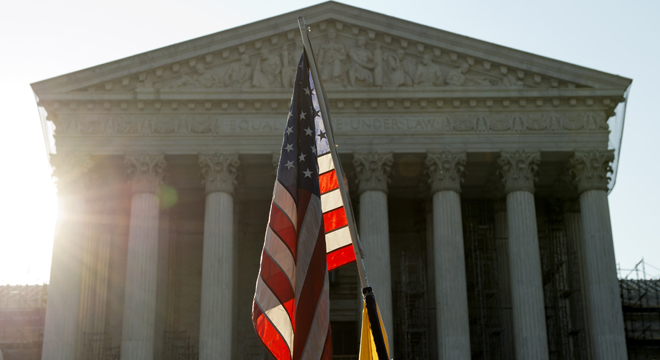If there’s any consolation for conservatives in Thursday’s health care ruling it’s that the Supreme Court affirmed one of the challengers’ arguments and partially affirmed another.
Though the Court upheld the Affordable Care Act’s individual mandate, it did so by way of Congress’ taxing power. In the same ruling, five justices agreed that Congress’ Commerce Clause power does not allow them to compel inactive people to purchase goods.
That was the crux of the challengers’ case against the law, and the Court agreed. That doesn’t matter as far as the ACA’s concerned — that law stands on different merits regardless. But legal experts disagree about how significantly this new circumscription of the Commerce Clause will impact future legislation and jurisprudence.
“It is more or less binding precedent,” said Timothy Jost, professor of law at Washington and Lee University. “But I don’t see that it stands for much, other than that proposals to privatize public programs by requiring people to purchase private IRAs, for example, are off the table. The decision may cause some mischief in the future as advocates try to make regulation of activity look like regulation of inactivity (I was just sitting there letting my sewerage drain into the lake, I wasn’t doing anything), but I don’t think this will cause much mischief.”
That’s the prevailing view. Others warn the ruling could be a precursor to a genuine earthquake in federalism.
“The court employed language that could be read to suggest that whenever statutes are novel, they are unconstitutional,” wrote Neal Katyal, former acting Solicitor General who argued the health care cases for the Obama administration in appellate courts. “This atextual reading of the Constitution, odd for ‘strict constructionists,’ may later blossom into a radical constitutional theory that could upend decades, if not centuries, of precedent, going all the way back to Chief Justice John Marshall’s famous opinion in the 1819 case McCulloch v. Maryland, which spoke of a flexible, adaptable Constitution.”
But even if the ruling doesn’t lead to a massive retrenchment of federal power, it could restrain government from future growth.
If the law had been upheld on Commerce Clause grounds, “Congress could have used the Commerce Clause to pass any economic regulation of its choosing,” argues Randy Barnett, who first proposed the argument at the center of the challengers’ case.
It’s true that the Court’s decision suggests Congress could work around that limit by using the taxing power. But Barnett notes that passing tax legislation is more politically difficult than passing other economic regulations, and the penalties for failing to pay penalties are typically less severe than they are for violating regulations rooted in the Commerce Clause.
For the time being, it’s almost impossible to imagine Congress passing any new legislation that essentially requires people to purchase goods or services. But Barnett’s still happy.
“Our formerly ‘frivolous’ Commerce and Necessary & Proper clauses argument prevailed,” Barnett said. “They are now existing doctrine.”










